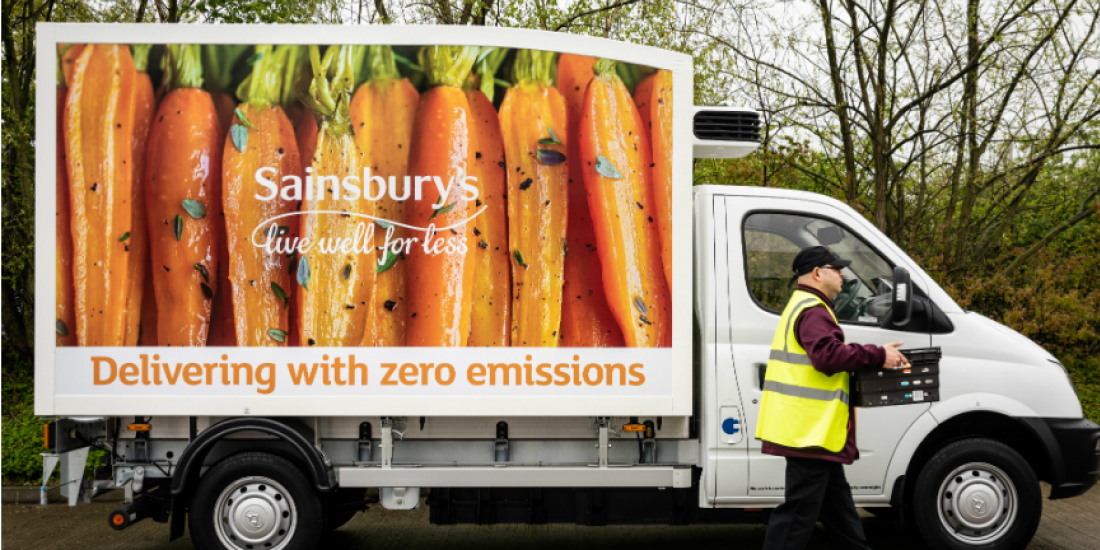We give you
Van insurance

Goods in transit insurance
For those working as haulage, courier, or delivery drivers, protecting your cargo while in transit is essential to avoiding any unforeseen financial losses. A goods in transit insurance policy will ensure your cargo is protected from loss, damage or theft while being transported from one location to another. While some Van or courier insurance policies do include a certain element of goods in transit cover, it's usually insufficient. It's recommended to seek a separate policy or add-on to ensure you have adequate cover for the value of your cargo.

What is a goods in transit insurance cover?
While your Van insurance policy covers you, your Van and other road users, Goods in transit cover is designed to protect the cargo that you are transporting from one place to another or while its being stored in preparation for transport. For example, a business can take out goods in transit cover to protect their cargo, even if it’s being transported by third party contractors from multiple distribution hubs.
If you plan to work as a courier or delivery driver, especially if self-employed, you’ll need to make sure you have adequate protection for the goods your transporting. In the event that your cargo becomes damaged during transit or subject to theft, you’ll be able to claim from your insurance company up to the maximum limits stipulated in your policy documentation.
What are the different types of goods in transit insurance?
Just like Van insurance, a goods in transit policy has varying levels of cover. What works best for you will depend on what your transporting, its frequency, and its overall value. Transit insurance for goods can be tailored to your individual requirements and finding the right level of cover is easy when using vaninsurance.com.
Whats covered?
Generally speaking, a goods in transit insurance policy will cover the cost of replacing the goods you are transporting should they become damaged while in transit or stolen from your vehicle. You may also receive some additional perks with your policy such as cover for unforeseen delays or acts of god.
Since most delivery drivers, couriers and hauliers work on behalf of a depot or supplier, making sure you have the right level of cover in place not only gives you peace of mind but also better business credibility. Making sure you accurately declare the value of the goods you regularly transport will ensure no surprises should the worst happen.
Every insurance company is different, and you’ll notice different policies have different levels of cover. We recommend using our online comparison portal to get quotes from as many different providers as possible. Using vaninsurance.com is a great way to save time and money whilst still getting the best insurance cover for you and your business.
Are there any exclusions?
Every insurance policy will have exclusions, policy limits and other limitations that need to be identified and understood. With goods in transit cover, it’s not so much about the insurance policy itself rather the types of goods that can and can’t be covered.
The transportation of human remains, organs or livestock for instance won’t be covered on a standard goods in transit policy. Liquids, foods, chemicals, perishables, and hazardous goods will understandably need a custom goods in transit policy.
You’ll need to make sure that your cargo is secured correctly in your Van. Most insurance companies will invalidate a claim if it can be proven the load was not adequately secured or packaged for transport.
You should also be aware that theft from a Van where the keys were left in it or it was left unattended overnight would certainly provide cause to invalidate a claim. If you need to leave your cargo overnight, make sure your insurance policy has the necessary increased cover for this.
How do I get a goods in transit insurance quote?
With vaninsurance.com, it’s now easier than ever to get a goods in transit insurance online quote. Since our platform allows you to compare multiple quotes at the same, you’ll be able to quickly establish which deal is best for you. We’re here to help online and on the phone. If you prefer to speak with an insurance specialist directly, give our UK based offices a call.






